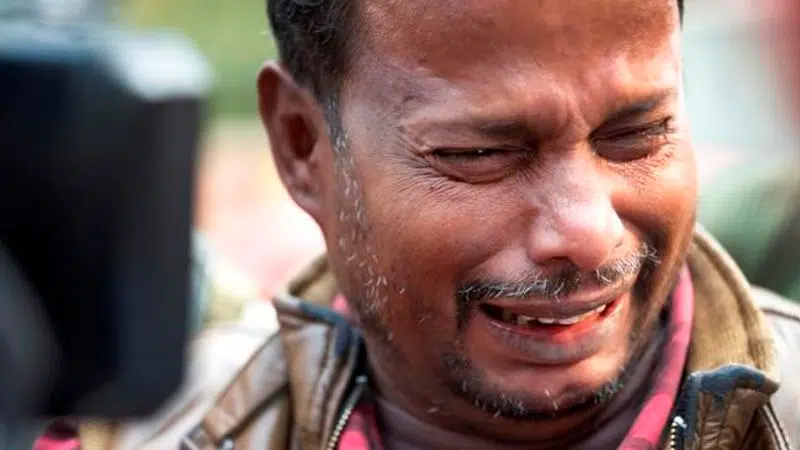
Devastating factory fire kills at least 43 in Indian capital
NEW DELHI — A fire believed to be caused by an electrical short circuit engulfed a building in India’s capital on Sunday where handbags and other items were made by workers earning as little as 2 dollars per day, killing at least 43 people.
The blaze in New Delhi’s Karol Bagh neighbourhood, a warren of narrow alleyways with electrical wiring strung helter-skelter, was the second major fire there this year. In February, 17 people were killed in a blaze that started in a six-story building’s illegal rooftop kitchen.
Karol Bagh contains the city’s largest wholesale market for household goods, known as Sadar Bazaar. The area’s aging buildings are stacked with apartments, shops, storage facilities and manufacturing units.
Assistant New Delhi police commissioner Anil Kumar Mittal said that “the fire appears to have been caused by an electric short circuit,” adding that authorities were investigating whether the factory was operating legally. Building laws and safety norms are routinely flouted in New Delhi, making fires common.
